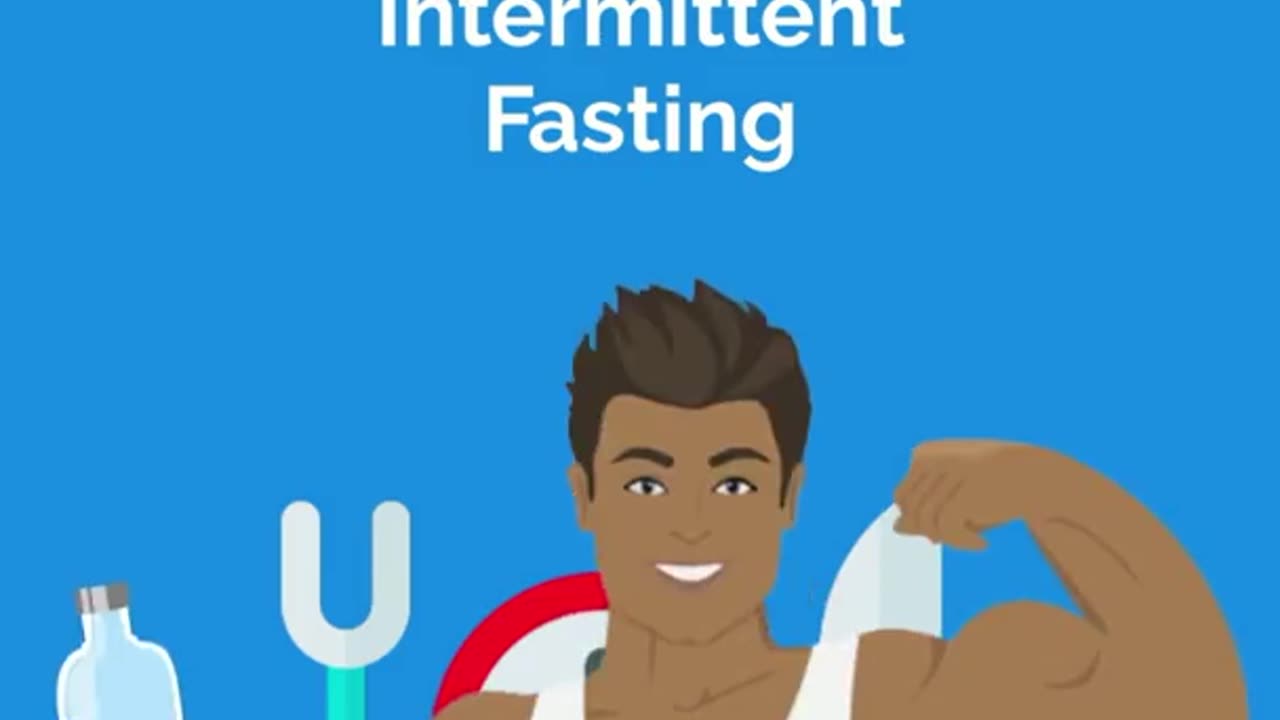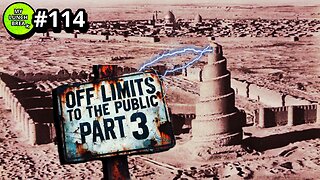Premium Only Content

Intermittent fasting: Scheme 16/8, menu, pros and cons. Real experience for a year!
Intermittent fasting for beginners
For beginners, I will briefly reveal the concept.
If it’s quite simple, then intermittent fasting is when you allocate a certain period of time during which you do not eat food, that is, you are starving.
In a goal format, intermittent or intermittent fasting (abbr. IF) is the practice of restricting food intake, usually within a daily cycle, aimed at improving overall physical health.
In practice, interval nutrition comes down, as a rule, to the fact that you have 2 intervals in a day:
The first interval is when you are fasting.
The second interval is when you eat.
The most common scheme that has proven its effectiveness in a number of scientific studies is the 16/8 intermittent fasting scheme. This is the scheme that I use, most often they start trying PG from it, we will consider it in detail.
The essence of the 16/8 scheme is that during the day in the interval of 16 hours we starve, and in the remaining interval of 8 hours we eat. There are other schemes for hours 15/9, 19/5, 20/4, and also for days: 1/6 (one day a week fasting, 6 days of food). I have not practiced them for a long time and constantly, so I will not consider them.
I’ll tell you how the 16/8 scheme looked like for me for almost the entire 2021 and how I continue to eat intervals now in 2022.
The essence of my diet plan is simple. I eat almost like the average person, with the only difference being that I skip breakfast. So I only have lunch and dinner.
My 16/8 meal plan goes something like this:
I wake up at 8-9 o'clock in the morning, eat nothing, drink only water, either at room temperature or warm, sometimes tea without sugar. And so until about 13-00.
At 13-14 o'clock in the afternoon I have my first meal, lunch. It is dense enough.
Further, after lunch, I usually brush my teeth and do not eat anything until dinner. Occasionally there are small snacks between 13 and 19 hours.
In the interval of 19-21 pm I have a second meal, dinner. It is also quite dense, because it is followed by a 16-hour fasting interval, from about 21-00 to 13-00 the next day.
I go to bed around 23-24 hours. I only drink water before bed. No juices, teas or anything like that.
Well, that's my whole scheme. As you can see, nothing is difficult. And specifically for me, this is a comfortable power scheme. I never really liked breakfast. Although many people think that breakfast is the most important meal of the day, in my case, breakfast is the same as lunch. If breakfast is critical for you, then you can try to remove dinner, that is, the good old "do not eat after 6 pm ...". For me, it is much more difficult to refuse dinner, so I removed breakfast.
The first time I practiced intermittent fasting for 1-2 hours before dinner, I experienced a very noticeable feeling of hunger, but over time I got used to it, in addition, the feeling of hunger increases my appetite. That is, when you are really hungry, you consume food with much greater pleasure.
For many, such intervals may seem unrealistic.
How is it not to eat 16 hours when I have eaten and usually want to eat again after a few hours?
Am I going to suffer all this time?!...
It may not be necessary to suffer if you figure out how much and what you need to eat.
Let me use the example of my menu to show how I can easily keep such intervals.
The menu I used for intermittent fasting
Let's start with my lunch-breakfast at 13-14 o'clock in the afternoon.
In my diet, priority is given to medium-fat protein foods. It is protein that allows you to maintain a feeling of satiety for a long time.
For lunch, I can eat scrambled eggs or a 3-egg omelet with some meat added - chicken, turkey or bacon. Besides frying, I can just boil the eggs.
In addition to eggs, I can have chicken, turkey, pork, beef for lunch .... I can eat fish or seafood for lunch. I usually eat all this without bread and side dishes in the form of buckwheat, rice or pasta. Although sometimes I add a small amount of carbohydrate side dish if I want to. I can also add complex carbs on a regular basis if I want to gain weight. Be sure to add a salad of fresh vegetables for lunch or just eat fresh vegetables as a snack. In summer, more often it is cucumbers, tomatoes, greens. In winter, it is carrots, cabbage, green onions.
For dessert, most often I prefer to eat nuts and fresh fruits. Sometimes I eat chocolate. Occasionally, with a strong desire, I can eat fatty carbohydrate desserts: pastries, ice cream, etc.
I won’t write the number in grams, because for people of different volume and weight there will be different grams. In most cases, you can find your volume of food intuitively, empirically. It is important to simply understand the amount of food that you need to eat so that it is enough for the next meal and at the same time not to overeat.
As for dinner, it is stretched between 19-21 pm.
In fact, dinner in terms of the ratio of proteins, fats and carbohydrates is no different from lunch. Sometimes I can even eat the same thing for lunch and dinner on the same day, but usually I try to diversify. That is, if I have eggs for lunch, then meat for dinner. If lunch is meat, then dinner can be fish. A fresh vegetable salad is also a must. Again, at a minimum of any side dishes, bread and other carbohydrate things. I prefer to get carbohydrates from fruits, nuts and milk.
For dinner, I often eat cottage cheese, usually with raisins and sour cream. I can make cheesecakes, lazy dumplings or a casserole out of cottage cheese. Cottage cheese can go in addition to the main course, as a dessert, then it is one pack of 200 grams. If I have cottage cheese for dinner, then you can eat 400 grams. But then again, I eat so much, these grams may not suit you.
Separately, I want to pay attention to the water. In the menu for intermittent fasting, it occupies a special place. I try to drink water quite often, so I always carry a bottle of water with me in the summer and a thermos of warm water or tea without sugar in the winter.
Especially water helps during periods when you begin to feel pronounced hunger before meals. As a rule, if you drink 150-200 ml of water, the feeling of hunger becomes dull. It does not disappear completely, but it becomes much easier not to break loose and not eat some kind of nonsense before the main meal.
Pros and cons of intermittent fasting
Specifically, in my case, it is for my health and well-being that there are much more pluses than minuses. How exactly intermittent fasting will work in your case, I don’t know, but let’s try to decompose the general pros and cons of intermittent eating in general for people, in my opinion.
Pros of PG
Improvement in overall health. The effect of fasting has been verified by a number of scientific studies.
As for my personal experience, I can say that PG is far from a magic pill for all diseases. This is a nutritional practice that can improve your health, some noticeably, some not. In my case, during the year of practice, I felt positive changes in my general well-being, I was less sick during the year.
2. Reducing excess weight while maintaining a calorie deficit. Intermittent fasting can be a great weight loss tool if used correctly.
The postulate that you need to spend more energy than you consume has not been canceled. PG will not solve your weight problems if you continue to eat the same amount of the same food, just dilute it at intervals without changing the calorie expenditure. Intermittent fasting will only work if you correct for an energy deficit. In my case, interval nutrition helps me keep myself in shape and reduce the percentage of subcutaneous fat if desired, but again this practice is secondary, the ratio of energy consumption and energy expenditure is primary.
3. Opportunity to get more free time. The writing techniques themselves, as well as cooking, if you cook for yourself, take a lot of time during the day. Sometimes we don't realize how much time we spend on food. When you start practicing PG, be prepared to have extra time. In my case, now I spend no more than 2 hours a day on food, while before, it took much more time for cooking and consumption.
Cons of intermittent fasting:
Individual intolerance, contraindications and side effects. I am not a scientist or a doctor, but I think that not everyone is shown a constant PG. It is possible that this will not work for you and your body, so practice intermittent fasting consciously. Before you start, it will be useful to be examined and consult with a professional doctor about whether you have contraindications to this kind of practice.
2. Natural feeling of hunger. Hunger and hunger go hand in hand. You are unlikely to be able to not feel hungry at all while practicing PG. For me personally, it has become a matter of habit. I'm used to experiencing it, the body has adapted to the feeling of hunger and I endure it quite comfortably.
3. Difficulties with changing habits and integrating into daily life. Many people know how to eat right, that it is useful to do morning exercises, exercise and many other useful practices, but for some reason they don’t do any of this. And some smoke, abuse alcohol, realizing the harm to their body. Why is this happening? One word answer - habits. Good habits, as a rule, are difficult and energy-consuming to develop, and it is easy to become addicted to bad habits. So with the practice of intermittent fasting, the same ambush as with physical education, proper nutrition and self-education. Integrating this habit requires energy, and many are simply lazy. Why am I lazy? I don't know, I just tried it for a month and I liked it. I'm used to it! That's all). They say it takes only 3 weeks to develop a good habit. Try to hold out for 21 days, then it will become easier.
16 vs 8 Interval Eating Year Conclusions from My Experience
So, what are the results I could feel in a year of intermittent fasting.
The main points in PG that I highlighted for myself:
Energy. For myself, I understood and felt that the feeling of hunger spurs my energy. I'm more active when I'm hungry. Although after meals I can feel a noticeable energy decline, but before, when I ate more often, for some reason these declines were felt more strongly. Until I know why.
Health. Since 2012, I have been keeping a kind of health diary, where I write down the days of illness with a detailed description of what happened to me. So here is a comparison of 2021, in which I began to actively practice PG, and in previous years I noticed that the number of days of illness became less: 8 days, against 12-21 on average for previous years. I don’t know how the statistics will change in 2022, many factors affect the incidence, but so far the statistics for me are such that I cannot but rejoice.
Physical form. As for the form, I have never experienced any particular problems with it. By the summer, I was conducting a small challenge, where, as part of the PG, I intuitively created a calorie deficit without counting calories.
But as I said above, intermittent fasting is a secondary tool. Primarily what and how much you eat and whether you have a calorie deficit.
More convenient planning of the day🕑. Since I don’t have breakfast, I can do the things I need almost immediately after waking up until 13 o’clock, without being distracted by eating. And I also have the opportunity to schedule a long event from 14 to 19 hours without the need for a break.
Clean teeth 🦷. A bonus with interval nutrition is more convenient to care for your teeth. I brush my teeth after every meal and in my case it is not stressful at all, since I only eat 2 times a day.
For a year of my conscious practice of intermittent fasting, for myself, I came to the conclusion about the practical benefits specifically for my body. How it will work for you, I cannot know, but still I hope that my experience will be useful for you.
All health)
-
 1:13:00
1:13:00
Patriots With Grit
15 hours agoWill Americans Rise Up? | Jeff Calhoun
46.2K13 -
 14:55
14:55
Exploring With Nug
15 hours ago $11.56 earnedWe Found Semi Truck Containers While Searching for Missing Man!
62K9 -
 27:57
27:57
MYLUNCHBREAK CHANNEL PAGE
23 hours agoOff Limits to the Public - Pt 3
142K69 -
 38:07
38:07
Michael Franzese
16 hours agoLeaving Organized Crime and Uncovering Mob in Politics: Tudor Dixon and Michael Franzese
111K15 -
 2:42:54
2:42:54
Jewels Jones Live ®
2 days agoAMERICA IS BACK | A Political Rendezvous - Ep. 111
86.9K50 -
 8:47:33
8:47:33
Due Dissidence
1 day agoLIVE: Workers Strike Back Conference ft. Chris Hedges, Jill Stein, Kshama Sawant, and More!
123K92 -
 8:36:37
8:36:37
Right Side Broadcasting Network
5 days agoLIVE REPLAY: CPAC 2025 Day Three with President Donald J. Trump - 2/22/25
471K104 -
 1:05:34
1:05:34
The Big Mig™
1 day agoConfirmed Kash Patel New FBI Director, Bring On The Pain |EP483
114K31 -
 53:59
53:59
Tactical Advisor
20 hours agoThe Vault Room Podcast 009 | Everyone Getting $5000?!
89.6K12 -
 2:04:44
2:04:44
TheAlecLaceShow
1 day agoLive at CPAC | Interviews with Dean Cain, Rep. Comer and more! | The Alec Lace Show
94K10